6. Joe (David Gordon Green, 2013)
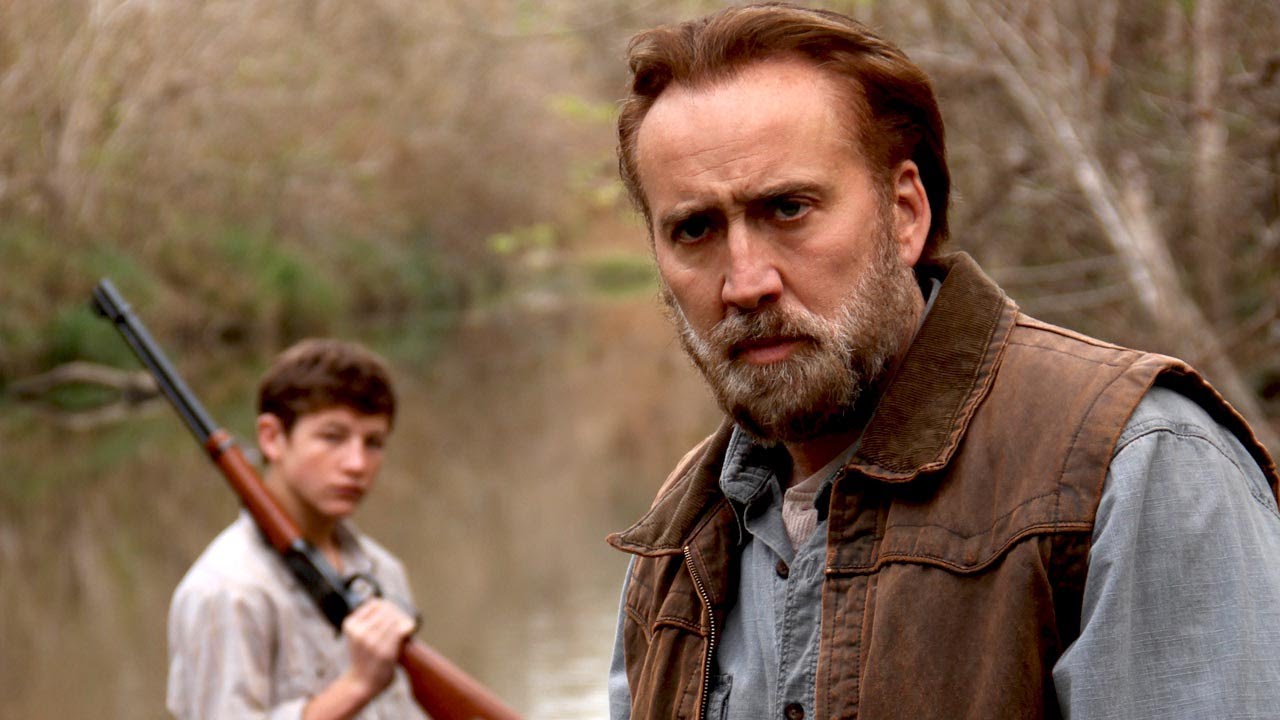
Joe Ransom (Nicolas Cage), the foreman of a Texas tree poisoning crew, tries to protect his young employee, Gary Jones (Tye Sheridan), from the wrath of his abusive father Wade (Gary Poulter). Joe was directed by David Gordon Green, whose multi-tonal films span from All the Real Girls, to Pineapple Express, to the most-recent Halloween reboot. At the time of its release, the film was a box office bomb – mind-boggling given its exceptional quality and message. Cage delivers a grounded, introspective performance, juxtaposing against his usual German Expressionist ‘Cage rage.’
The star of the film is undoubtedly Gary Poulter. Despite being a non-actor with no prior experience, his performance is so honest and real, one cannot tell whether he’s acting or the film is a documentary about him. Such is his raw, powerful talent, Joe easily propels him to the highest rung of actors. His jaw-dropping work is the paradigm to which all other actors should be judged by. He reaches a level that makes even the most-celebrated thespians look like circus puppets by comparison. Poulter never got to see his first and final performance, or receive his Austin Film Critics Association award. Tragically, he died before Joe’s release. What was lost was one of the greatest actors the world has ever seen.
Joe is a film that deals with child abuse, dysfunctional families and parental neglect. What is the purpose of this depiction? Films like Joe help us to experience, first-hand, the psychologically-damage incurred by child abuse. Its immersive, visceral, documentary-like cinematography, captured by frequent Green collaborator Tim Orr, deeply embeds the audience in Gary Jones’s emotional inner world. By raising an awareness of child abuse, shining a light on a subject that’s often remained in the dark, Gordon Green highlights the issue’s importance, opens-up a dialogue. Genres like crime and horror often display reprehensible actions with the objective of repelling audiences against reenacting them. Like Green’s Prince Avalanche, the forgotten, humanistic powerhouse that is Joe dwells in the crossroads between real-life tragedy and southern gothic mythology.
7. Cold In July (Jim Mickle, 2014)
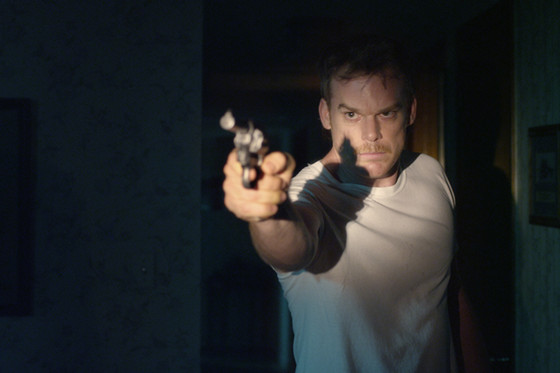
Based on the novella by Joe R. Lansdale, Cold In July’s set in East Texas, 1989. After killing a man in self-defence, Richard Dane (Michael C. Hall) fears for his life as the man’s father, Russel (Sam Shepard), closes-in on his family. Vinessa Shaw and Wyatt Russell also star, with Don Johnson as rhinestone-studded badass Jim Bob.
It’s one of few movies where one feels anything could happen at any time. Director Jim Mickle is a natural in eliciting superb performances from his players, none more so than in actor, playwright and Paris, Texas screenwriter Sam Shepard. Whereas in titles like Baby Boom (1987) we often see Shepard as a quiet, kindly figure, here, Mickle mines his quietness to release a hair-raising menace in the actor. In addition, Shepard’s experience brings a wisdom and weariness to Russel, his face providing the character’s backstory. In all his roles, Shepard’s gentleness, grace and intellectual contemplativeness summons similar peaceful introspection in his audience.
In addition, Don Johnson, permitted to relax into his true Ozark Mountains accent, styles perhaps the funniest, coolest and best-acted performance of his career. Confounding expectations throughout its duration, Cold in July is as close to neo-noir heaven as it comes. Everything that’s best about the genre’s condensed into its duration: a captivating story, chiaroscuro lighting with licks of neon, a brooding atmosphere, nail-biting tension, southern humour, a synth score, larger-than-life characters and horror-esque action. It’s a film that’s best experienced with little prior knowledge of its surprising story. Although successful upon its release, ultimate B movie entertainment Cold in July still hasn’t fully received the adoration it’s worthy of.
8. The Trust (Alex & Benjamin Brewer, 2016)
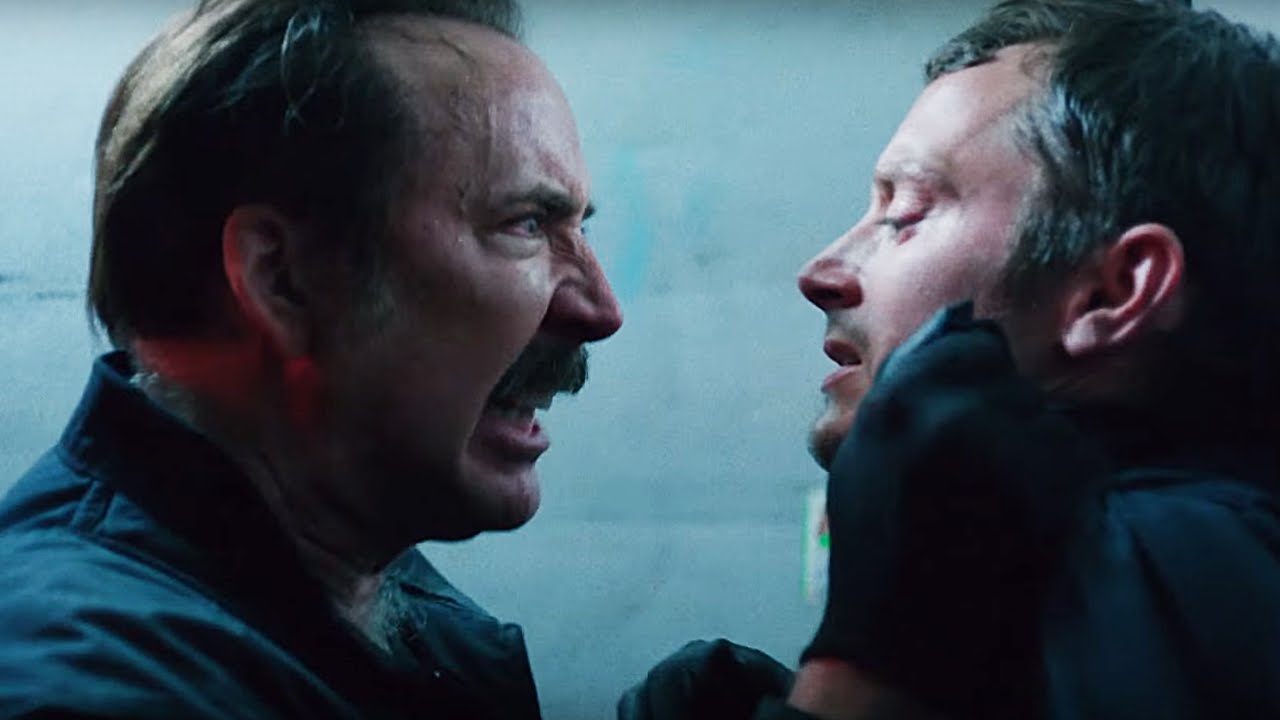
‘Nouveau Shamanic’ myth Nicolas Cage and Lord of the Rings’ Elijah Wood are Jim Stone and David Waters: cops plotting a heist. Their objective is to rob a drug dealer, but events deviate wildly from their plan. The movie’s the only feature to-date of music video-directing brothers Alex and Benjamin Brewer. It’s the last film comedian Jerry Lewis acted in before his death. The movie’s bewitching theme music is soul deep-cut: Tipping Strings, by the Knights.
With its focused plot and concise writing, The Trust feels like the best film the Coen brothers never made, meeting the high bar of their work in the ‘80s and ‘90s. Ethan Suplee, beloved as Randy in My Name Is Earl, gives an unusually heartless, chilling, dominating cameo, rivalling the most terrifying of movie villains. Cage and Wood also reassert their natural talents: Cage delves into zany comedy, Wood into paranoia.
The Trust’s straightforward focus is refreshing, with so many pieces muddling their intention. The Brewer brothers are very clear about the effect they want to achieve and execute it with scientific exactitude. There is no fat to this movie, it’s been whittled down to a lean gemstone, in the ilk of Paul Thomas Anderson’s debut: Hard Eight (1996). What it reaches for is the perfect neo-noir. It exceeds this, examining the titular theme, in conjunction with greed, capitalism and the abuse of power.
More than any other title on this list, rare find The Trust will overjoy fans of heist movies on a quest for the best in the sub-genre, as it will admirers of Nicolas Cage. Undeniably one of the finest crime titles of the last 10 years, it will similarly interest those whom have enjoyed Fargo and Soderbergh’s work. Superseding its simplicity, The Trust will keep you guessing and on the edge of your seat.
9. Dragged Across Concrete (S. Craig Zahler, 2018)
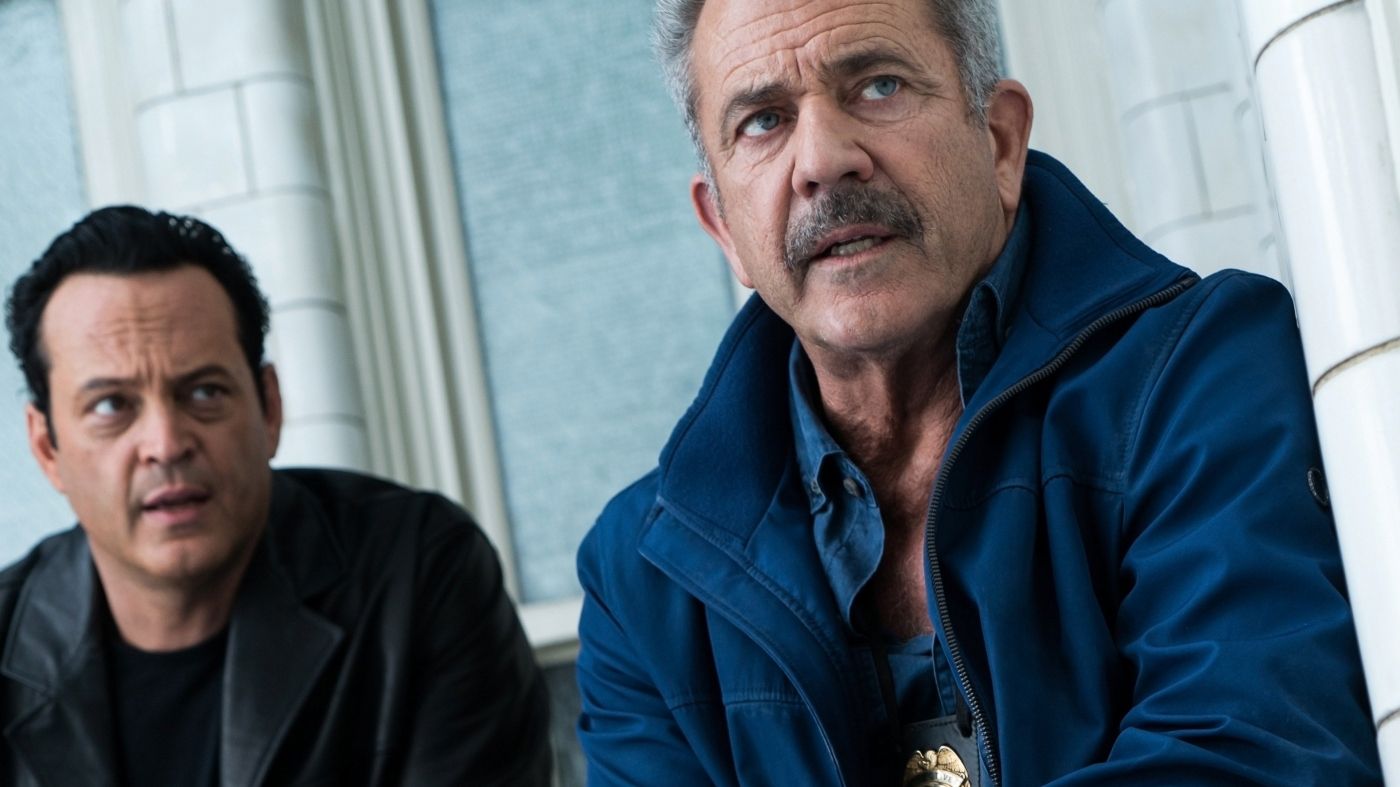
Black metal musician and novelist S. Craig Zahler made his 2015 debut with celebrated cannibal-western Bone Tomahawk. His third movie re-teamed him with Vince Vaughn, following their collaboration in 2017’s guttural Brawl in Cell Block 99. Vaughn and Mel Gibson are Anthony and Brett: ‘cancelled’ detectives who decide to take advantage of an armed robbery. Tory Kittles, Horror icon Udo Kier, the mysterious Fred Melamed, Don Johnson and Black Dynamite’s Michael Jai White enrich the supporting cast.
Different directors use violence for different purposes: Robert Rodriguez’s violence is comedic, George Romero’s was sociological. Zahler’s mutilations are traumatic, merciless and tear-jerking, eliciting a reaction of empathy in his audience. This response helps them to understand the emotional ramifications of real violence, to put themselves in the shoes of the person whose experienced it. In this, we see Zahler’s intention to realistically portray violence’s tragedy, not a Hollywood glorification of it.
Never before, in so few scenes, with the marriage of Jennifer Carpenter’s gifted cameo and Zahler’s succinct writing, has a movie delivered such a heartbreaking punch. Surpassing the confines of its brevity, Dragged Across Concrete manages to make audiences love Carpenter’s character, Kelly, more than any other cinematic figure in memory. Ideally, in years to come, the maturation of this title will encourage filmmakers to consider Carpenter for prolific casting. She’s a startling, under-appreciated talent – clearly leading lady material. Given her exceptional performances in Zahler’s work, it’s puzzling she isn’t the forefront of 2020s Hollywood.
With the surreal effect of its literary dialogue, Brutalist production design, sinister suspense and stellar cast, the slow burn Dragged Across Concrete is a distillation of the best neo-noir has to offer. It addresses police corruption, prejudice and political polarisation in contemporary America. A buddy comedy is also present beneath its barbarity, including character details such as Anthony’s punctuating repetition of “anchovies.” Like Tarantino in the ‘90s, Zahler was the crime genre’s voice of the 2010s. With Dragged Across Concrete being his most-recent release, it remains to be seen whether Zahler will return to express himself in a medium he’s adept at.
10. 3 From Hell (Rob Zombie, 2019)
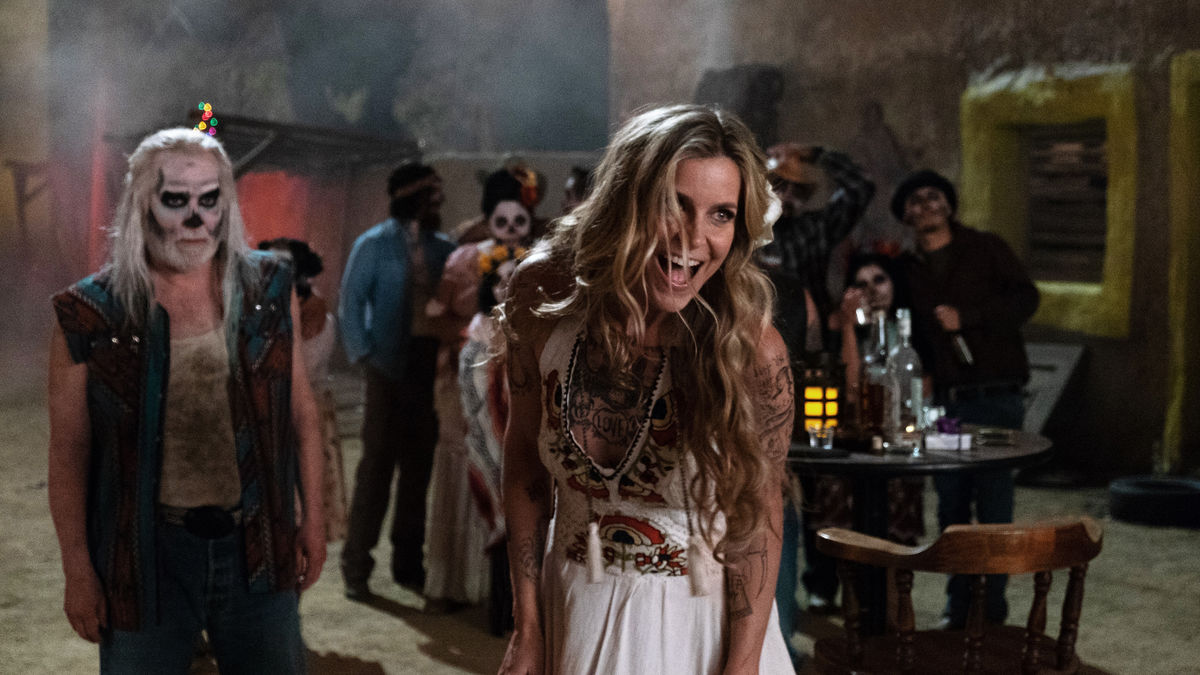
This rock ‘n’ roll neo-western is the final instalment in heavy metal vocalist, cartoonist, novelist and horror auteur Rob Zombie’s Firefly Trilogy. It takes place in 1988, 10 years after the events of its predecessor: The Devil’s Rejects (2005). Infamous serial killers Baby Firefly (Zombie’s wife: Sheri Moon Zombie) and Otis Driftwood (Bill Moseley) breakout of jail and resume their Nihilist gore on a road trip to Mexico.
One of the qualities that makes Zombie’s films characterful is their stylish, grainy, ‘70s-inspired cinematography. Adroitly, Zombie’s adopted Jean Rollin’s poignant freeze-frame as a mainstay of his technique. In 3 From Hell, cinematographer David V. Daniel successfully experiments with psychedelic Rorschach split-screens. Zombie’s vision is detailedly articulated through a redneck pop culture banquet of neon lighting, vintage costumes and a minimalist, pulp novel structure. He blends the best of gangster movies, westerns, horror, comedies and counterculture arthouse cinema. The film’s action sequences denote a particular technical and directorial maturity at this stage in his career. Sergio Leone would’ve been proud of the folkloric flair of the film’s shootout.
3 From Hell utilises the talent of Welsh-American actor Richard Brake, whose sadistic, otherworldly performances punched viewers through the screen in Mandy and Zombie’s 31. Brake has the ability to tap into a depravity and wildness no actor has accessed with quite the same purity: his presence in 3 From Hell is more wolf than man. Sons of Anarchy’s Emilio Rivera brings gravitas and dignity to his character, whilst Machete’s Danny Trejo continues to deepen the emotionality and nuance of his craft. Sheri Moon Zombie and Bill Moseley hold the talent to toy with the audience’s affections: sometime’s they’re repelled by the pair’s violence, others, they’re shocked sympathising with them when they’re under attack from even more macabre villains.
What’s often been overlooked in Zombie’s work is the deeper meaning behind his gore. In the spirit of a piece that greatly inspired him, The Texas Chain Saw Massacre (1974), Zombie’s anarchic screenplays are about predator and prey, mirroring the meat industry. As a PETA supporter, it’s a conceivable interpretation that Zombie’s work comments on humanity’s butchering of animals, as well as one-another. His stories’ dystopian extremes show us the worst in the human race, forcing us to identify the moral flaws continuing to overshadow society. A chapter where the gang holds a clown and 2 couples hostage stands as one of cinema’s scariest, bleakest, most-unsettling scenes.
Though not quite topping the energy of the similarly-plotted Devil’s Rejects, 3 From Hell’s an insatiably entertaining standalone exploitation flick in its own right, as well as a satisfying curtain to the Firefly Trilogy. For crime aficionados in-search of something new, it’s almost certain to delight.